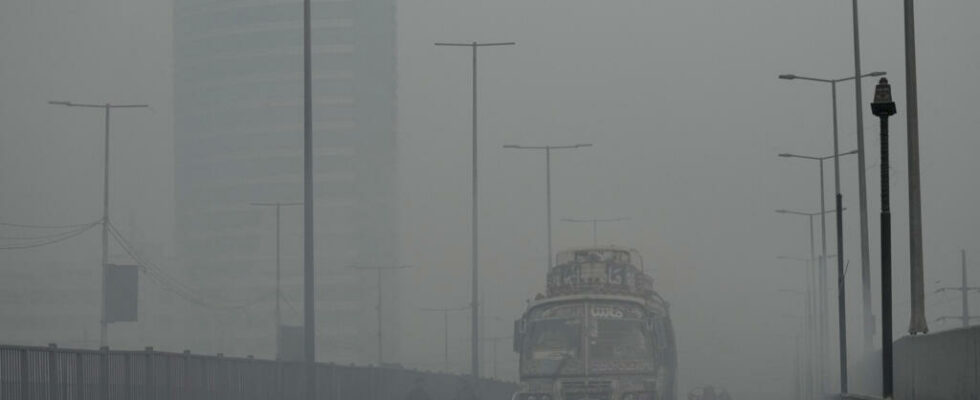Air pollution in Lahore, Pakistan’s second city, reached a record on Saturday: more than 80 times higher than that considered acceptable by the World Health Organization (WHO), a government official told AFP.
2 mins
The air quality index peaked at 1067, before dropping back to around 300 in the morning. But air is considered to be “ bad » from 180, according to this WHO index, and “ dangerous » beyond 300. « We never reached a level of 1000 » in Lahore, Jahangir Anwar, senior environmental protection official in the local government, told AFP.
This week, the air quality index “ remained below 200 » in the city of 14 million inhabitants. Already, the concentration of PM2.5 polluting particles was already almost 20 times higher than the level deemed acceptable by the WHO, he continued. This Saturday, November 2, they reached 80 times this level.
For days, Lahore has been, like every year, caught in the smoga mixture of fog and polluting emissions favored by low-end diesel fumes, smoke from seasonal agricultural burning and winter cooling. “ The air quality index will remain high for the next three to four days “, added Jahangir Anwar.
Activity and travel restrictions
On October 30, the provincial environmental protection agency announced new restrictions in four ” hot spots » of the city – after having already canceled all outdoor sporting activities in schools for three months.
Touk-touks equipped with two-stroke engines, which are more polluting, are prohibited, as are restaurants which do barbecues without filters. Administrations and private companies will have half of their staff working from home from November 4. Construction work is halted and street food vendors, who often cook over open fires, must close at 8 p.m.
Health hazard
In addition, Pakistani authorities say they will have to deal with a wind coming from theIndia neighbor, also regularly caught in smog at the end of the year. NASA satellite images show numerous fires on both sides of the border where farmers are carrying out agricultural burning this season.
According to theWHOprolonged exposure to smog can cause strokes, heart disease, lung cancer and respiratory illnesses. The Punjab government appealed to the locals in particular “ those suffering from respiratory, pulmonary and heart diseases, the elderly ” has ” not leave their home “. If they go out, they must ” obligatory to wear masks “.
Also readIn Pakistan, artificial rains caused to stem air pollution
